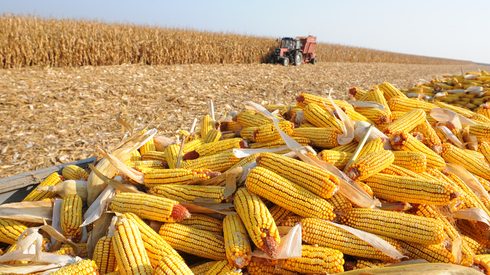However, the document makes only brief mention of biofuels, including sustainable aviation fuel (SAF), despite their importance in decarbonizing industries such as aviation.
In the first half of 2024, half of the EU’s electricity generation came from renewable sources, breaking previous capacity records.
At the same time, the EU reduced its reliance on Russian gas, with imports dropping from 45% in 2021 to 18% by June 2024. The gap was filled by increased imports from partners such as Norway and the US.
Gas demand was reduced by 138 billion cubic meters (bcm) between August 2022 and May 2024, and the EU reached its winter gas storage target of 90% by August 2024, well ahead of the November deadline, the report showed.
The EU also made notable progress in reducing emissions, cutting greenhouse gas (GHG) emissions by 32.5% from 1990 to 2022. Over the same period, the EU economy grew by around 67%, demonstrating economic growth alongside environmental sustainability.
Challenges in growing net-zero technology
Despite these achievements, the report also points to challenges for EU manufacturers in the growing net-zero technology markets.
The production of lithium-ion (Li-ion) batteries and heat pumps recorded the most significant growth in 2023, with a 30% increase in production value. Other technologies, such as fuel cells, ocean energy, biofuels and carbon capture, utilization and storage (CCUS), also grew.
Despite these gains, the EU’s trade deficit in Li-ion batteries increased by 21% compared with 2022 levels, reaching nearly €19 billion ($20.95 billion). A similar trend was observed in solar photovoltaics (PV), although the trade deficit in this sector fell by 13%, the report said.
Focus on biogas and biomethane
Looking ahead, the EU is focusing on biogas and biomethane production as part of its climate strategy.
The report projects production could reach 30-32 bcm by 2030, although more effort is needed to hit the EU’s target of 35 bcm per year by that time, according to the Commission.
In 2024, combined biogas and biomethane production stood at 21 bcm, with biomethane accounting for 5.2 bcm.
The EU aims to achieve climate neutrality by 2050, with an intermediate target of reducing net GHG emissions by at least 55% by 2030 compared with 1990 levels. Additionally, the Commission has proposed a 2040 target to cut emissions by 90%, reinforcing the EU’s commitment to becoming the first climate-neutral continent.






